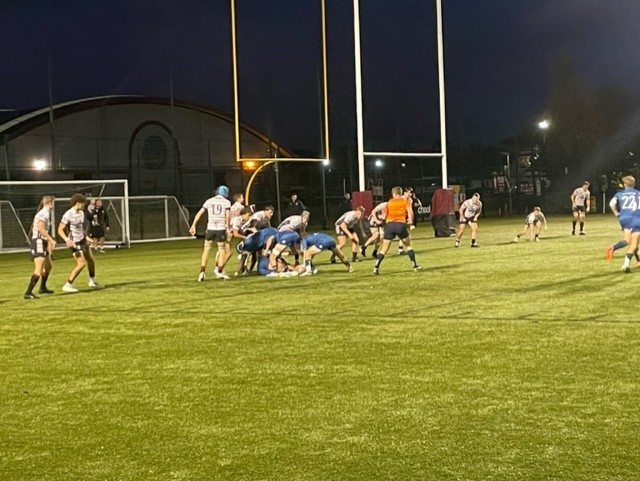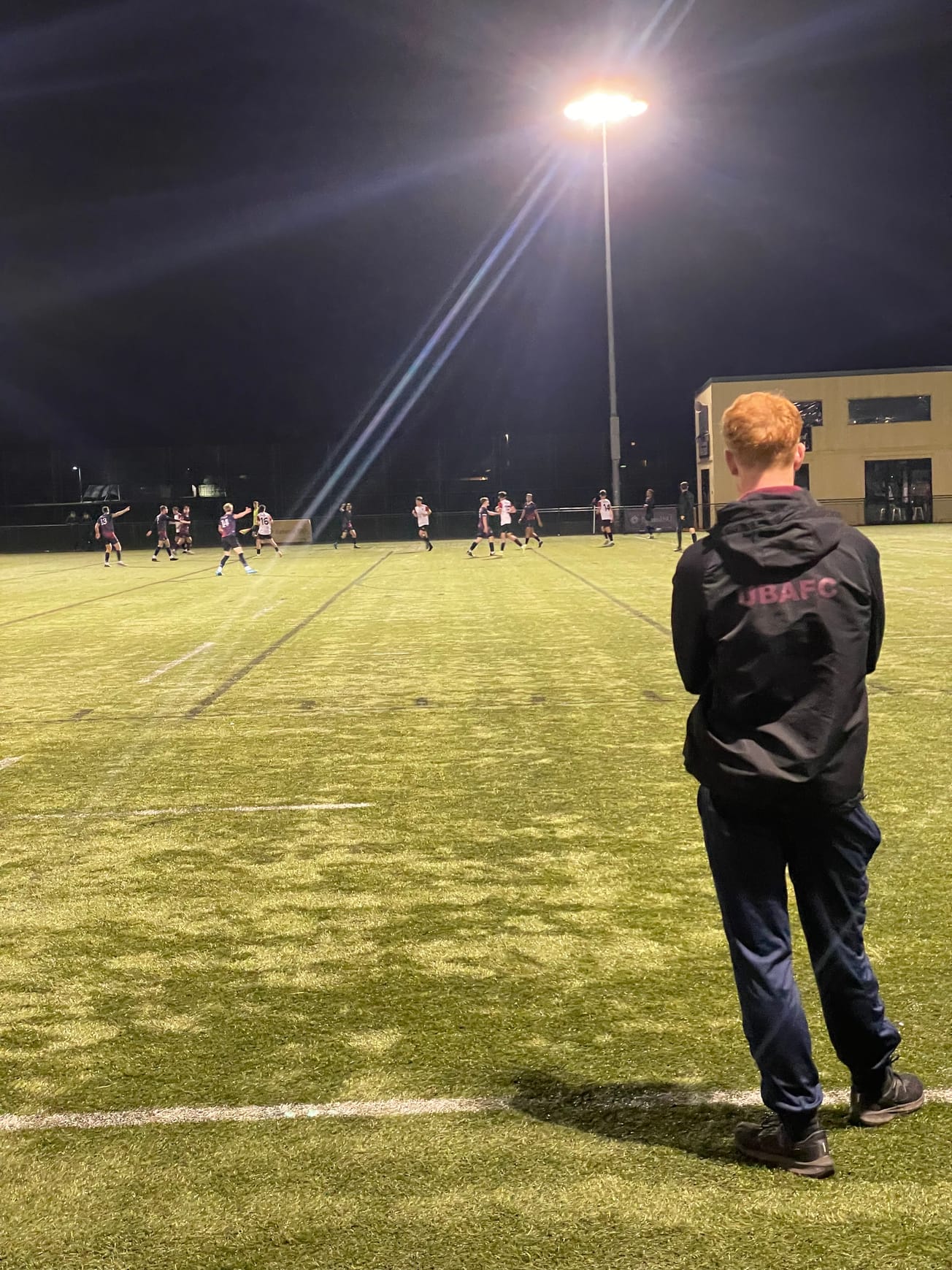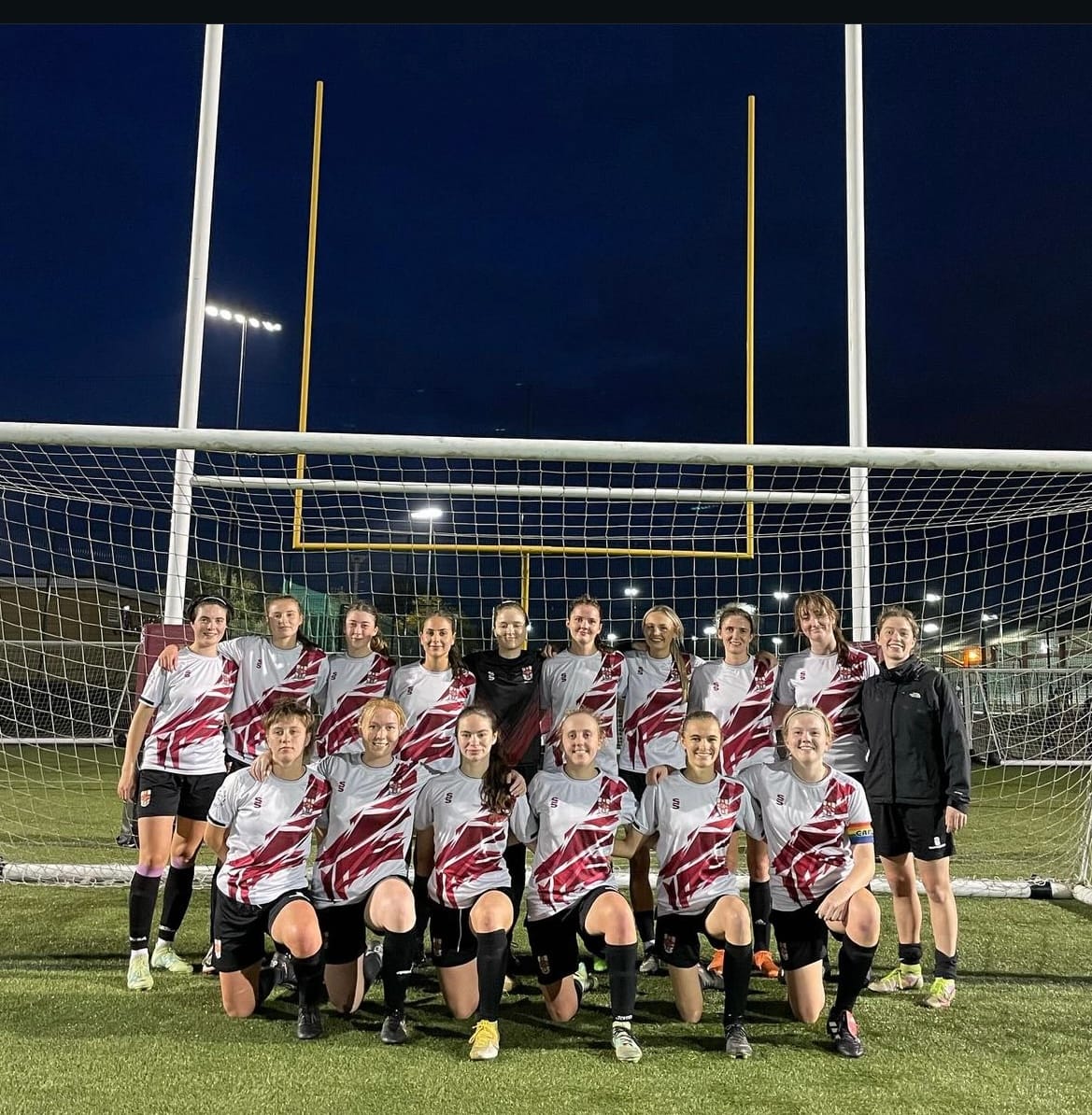By Adam Mountain, Second Year, History
It is damning that one of the greatest challenges women in rugby face is off the pitch, rather than on it. Overcoming prejudices continues to be the crux for women in sport and this is none more so prevalent than in rugby. Epigram sat down with the inspiring University of Bristol Women’s Rugby Club (UBWRFC) to discuss the club's role in tackling the stigmatic narratives that hamper women in rugby.
Club Captain, Skye Ayling (Second Year, Physiological Science), Club Secretary, Felita Beasley (Second Year, International, Social and Public Policy) and 1st XV player, Lieske Oomen (Second Year, Neuroscience), all joined Epigram for an interview to reflect on their experiences of difficulty as young girls in rugby, how these have compared since joining UBWRFC and what the next steps should be to elevate the club further.
Rugby is deeply ingrained in this trio, who all started playing in primary school before quickly moving to higher performance-level clubs. Yet despite an undeniable love for the sport, their childhood and teen experiences of rugby are tainted by abuse, sexism, homophobia, unequal treatment compared to the male teams and difficulties with body image. Talking on this, Lieske commented: ‘Growing up, you would be given the worst pitches, on the worst time-slots, while only lending the men’s equipment.’ Lieske then discussed her mother, who was one of the only female coaches in the club: ‘Most weeks she had to deal with all of the sexism and everything that could be thrown at her […]. It was very conflicting, because rugby is both empowering but also exacerbates difficulties of being different in sport through gender.’

Image courtesy of SmifSports Photography
Skye also made note that in women’s sport, rugby in particular suffers from sexist stigmatisms:
‘I think that women’s rugby is currently a couple of steps behind the rest of women’s sport. There will always be something pulling it back because of the physicality. Stereotypically, women are not meant to be physical.’
These difficulties are far from gone, but there has been a widespread effort over the last few years in changing the perceptions of women’s rugby. With growing anticipation for the World Cup in 2025, England Rugby launched its ‘Love Rugby’ campaign last year with the aims of increasing female engagement and removing the difficulties that women such as Skye, Lieske and Felita have all experienced as rugby players, even at a grassroots level.
Therefore, creating a safe and inclusive culture is at the heart of what makes UBWRFC one of the biggest and most successful women’s university sport clubs in the country, which Felita reflected on:
‘I remember in my first season, being in strength and conditioning, and looking at everyone’s different body types and thinking that this is so good. I fit here and love that there’s a collection of differences here.’
The club is certainly on an upwards trajectory; the partnership, starting in September last year with the Bristol Bears, has inspired the club to reach new heights. On the impacts of the partnership, Skye said: ‘It has been massive in both gaining bigger engagement from new players, while also enhancing the performance teams.’ She particularly sang the praises of Holly Phillips, who joined UBWRFC from the Bears as Assistant Head Coach and Forwards Coach for the performance team. ‘There is something really fantastic about having a female coach for our performance side: someone who has had an amazing experience playing premiership rugby.’
Felita continued this by advocating for the importance of having more female coaches in rugby:
‘Often, the female coaches can understand us better […]. This is not to take away from the men, but there is a connection driven from of us collectively being women in sport that allows us to elevate each other.’

Image courtesy of Lieske Oomen
The Bristol Bears partnership stands as a fantastic example of the efforts made by UBWRFC to raise the bar of what it means to be a university sports club. However, the work is not yet complete and when asked why she ran for Club Captain, Skye elaborated on what she feels the next steps are for UBWRFC.
‘We’re in a position at the university where we have the women’s rugby team and the rugby team. It’s not just women’s rugby as some sort of sub-category of the sport. We’re not separate, it’s the same sport. Now it’s just a case of breaking down those traditions. We need to be getting more of the men’s team supporting us and equally us supporting them, but that crossover isn’t quite there yet.’
For Lieske, confronting these traditions that disparage women’s rugby ultimately requires a change in how the women’s game is perceived at every level: ‘we need more men and women being a part of women’s rugby, that don’t perceive us as merely a stepping-stone to the men, but actually see us as where they want to end up.’
‘Society, as a whole, often doesn’t like seeing strong, powerful women that know what they want and have a voice, but when you’re on that pitch, you’re with other people who are all fighting for the same goal, as a team and a family.’
It can only be hoped that with initiatives such as ‘Love Rugby’, a successful World Cup next year and a club as driven for change as UBWRFC, that soon we will begin to witness women’s rugby truly thrive. Yet, attacking the heart and mind of a sport that has long been defined by its masculinity will always be difficult. Sexist, dismissive attitudes remain a common issue within all women’s sport, for which rugby takes the brunt of it. That being said, it does feel as though UBWRFC has reached a watershed moment. The likes of Skye, Felita and Lieske serve as inspirations for any woman in sport and they speak on behalf of a club which remains absolutely resolute in defying the odds.







